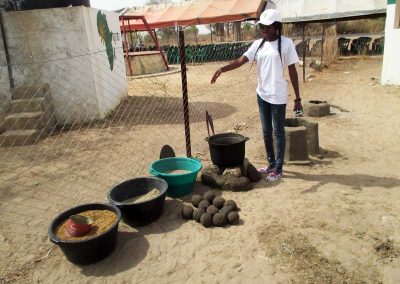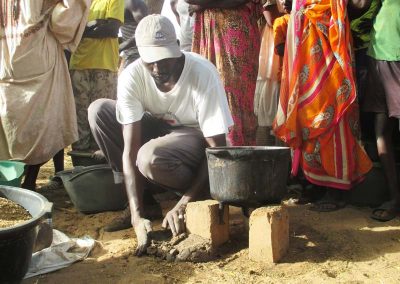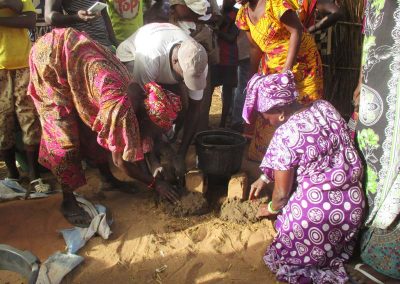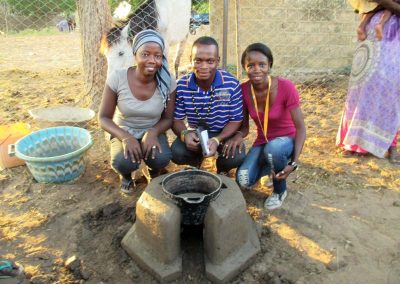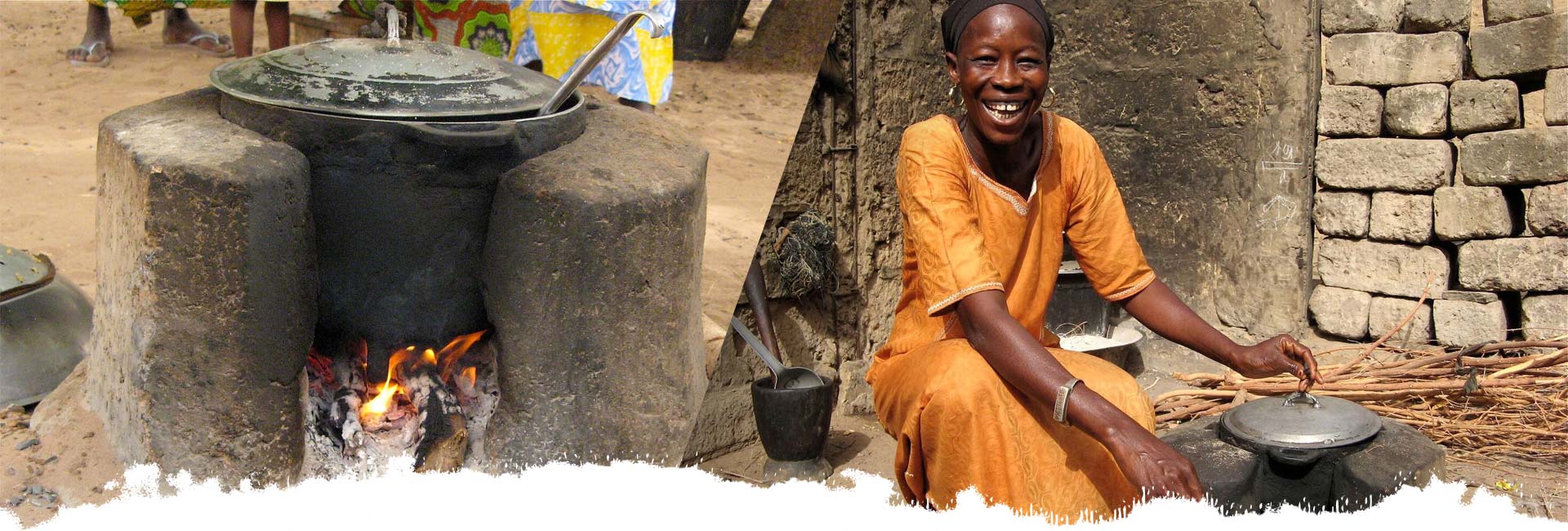
Renewable Energy and Appropriate Technology
CREATE! will continue to employ its considerable expertise in appropriate technology to improve renewable energy infrastructure while empowering community members to take sustainable climate action through use of:
Renewable solar energy to power pumps in renovated wells to irrigate community gardens
Improved cookstoves that use sixty-seventy percent less fuelwood and protect West Africa’s depleted forests and savannah
Rehabilitate wells and solar-powered pumps
From Improved Cookstoves to Solar-Powered Pumps: Finding Appropriate Technologies for Renewable Energy
Our clay-sand improved cookstoves are the primary way that communities take part in CREATE!’s renewable energy sector, in combination with other appropriate technologies such as solar-powered pumps for wells. CREATE! is addressing these problems in Senegal through an integrated approach to energy conservation: the use of sustainably-designed and technologically appropriate improved cookstoves.
Clay-sand improved cookstoves are completely free to build using all local materials: clay, sand, dry grass, and water. CREATE! technicians teach members of the community how to build the stoves, particularly the women, encouraging them to teach others and spread the technology throughout Senegal’s villages. The improved cookstoves enable women to prepare meals using their usual methods and pots more safely and efficiently than on traditional open fires.
Because improved cookstoves reduce firewood consumption by 60-70%, community members are helping to reduce deforestation. Women are also saving money, as they no longer have to purchase as much additional firewood from vendors to meet their cooking needs. Using solar-powered pumps to bring water up from their wells, women are able to not only grow food in their gardens more productively, but they also have access to enough water too cook with and provide to their families for drinking.
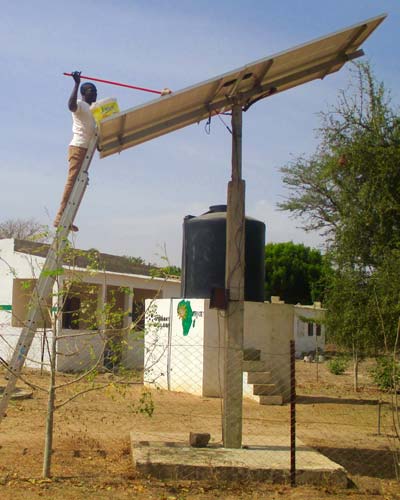
Taking Advantage of the Desert Sun
In rural Senegal, the sun is an abundant and important source of energy, whereas water is a scarce and critical resource that is difficult to get out of the ground. Most rural communities get their water from the expensive commercial water system, or use a bucket and pulley system to draw water from their wells by hand. This latter method is a labor-intensive and time-consuming task – usually performed by women – that can provide enough water to meet daily household needs but cannot provide the quantity of water needed to engage in dry-season crop cultivation. And while most people have access to the commercial water system, it is often cost-prohibitive for poorer communities in rural Senegal.
A highly successful integration of two of CREATE!’s project sectors – water and renewable energy — CREATE! technicians install solar-powered pumping systems in rehabilitated wells in our partner communities to address this issue. These pumps bring water from communities’ wells, and into their 5,000-liter water reservoirs, providing an easily accessed and abundant source of fresh water and making year-round crop cultivation possible for the first time ever without the use of expensive and nonrenewable fossil fuels.
Additionally, CREATE! has long term goals to implement other renewable energy technologies in partner villages according to their needs, including solar powered lighting and water heating systems. CREATE! has already installed a passive solar water heater in the village of Gagnick Mack. This solar water heater provides hot water for births at the local community health center.
Renewable Energy With Tree Planting Campaigns
As part of CREATE!’s renewable energy sector, technicians also teach participants how to grow trees to help with reforestation, and train them on the importance of replenishing the natural resources that they use. Communities plant fruit and nut trees around their community gardens for shade and harvesting, as well as varieties of trees to be used for firewood and building materials. Some of these include papaya, flame trees, lemon trees, almond trees, acacia, mango, and beechwood.
With careful planning, community members plant thousands of seeds in little sachets early in the year, and monitor their growth until they can be planted as seedlings during the rainy season. Over the years, the trees mature and many produce nuts and fruit that will be harvested for food, and firewood that can be used in their improved cookstoves. Additionally, temperatures can be reduced by up to 10 degrees F under their shade, helping soil to retain more moisture, and providing some relief from the hot desert sun.


